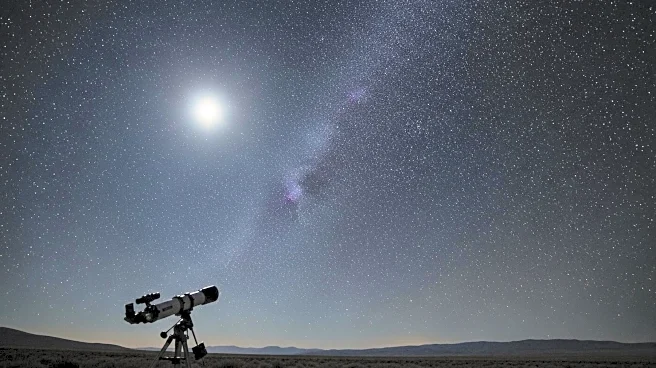What's Happening?
Great Basin National Park, located in eastern Nevada, is renowned for its exceptionally dark skies, making it an ideal location for stargazing and astronomical observations. The park's remote location, high elevation, and dry climate contribute to minimal light pollution and clear visibility of celestial objects. The park hosts regular astronomy programs and an annual festival, attracting visitors and researchers. It is home to the Great Basin Observatory, which conducts research on binary stars and exoplanets, utilizing data from NASA missions.
Why It's Important?
The park's designation as an International Dark Sky Park highlights the importance of preserving natural dark environments amid increasing light pollution. Such areas are crucial for scientific research and education, allowing for detailed observations of space phenomena. The observatory's work contributes to broader scientific efforts, including collaborations with NASA, enhancing the understanding of exoplanets and other celestial bodies. The park's dark skies also offer a unique experience for visitors, promoting awareness of the need to protect these environments.
Beyond the Headlines
The preservation of dark skies is vital for both scientific research and cultural appreciation of the night sky. Efforts to minimize light pollution can lead to broader environmental benefits, such as energy conservation and improved ecosystems. The park's initiatives serve as a model for other regions seeking to balance development with environmental stewardship. The educational programs offered at Great Basin National Park inspire future generations to value and protect natural resources.










